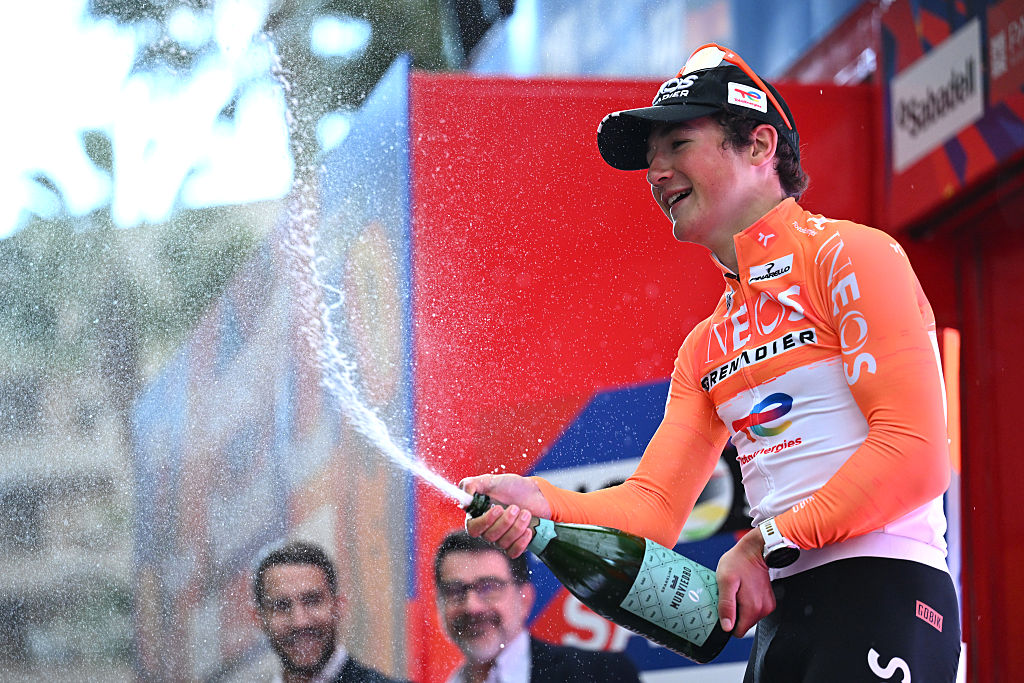Trentin captures fourth stage win in Vuelta and Quick Step's sixth
Belgian team clinch nearly a third of all the Vuelta sages.
The latest race content, interviews, features, reviews and expert buying guides, direct to your inbox!
You are now subscribed
Your newsletter sign-up was successful
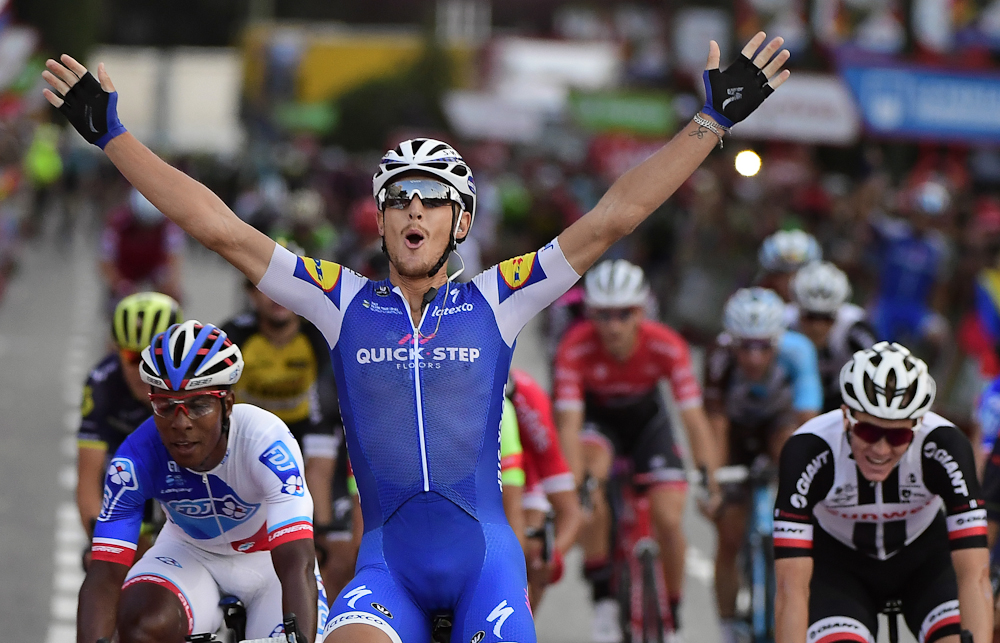
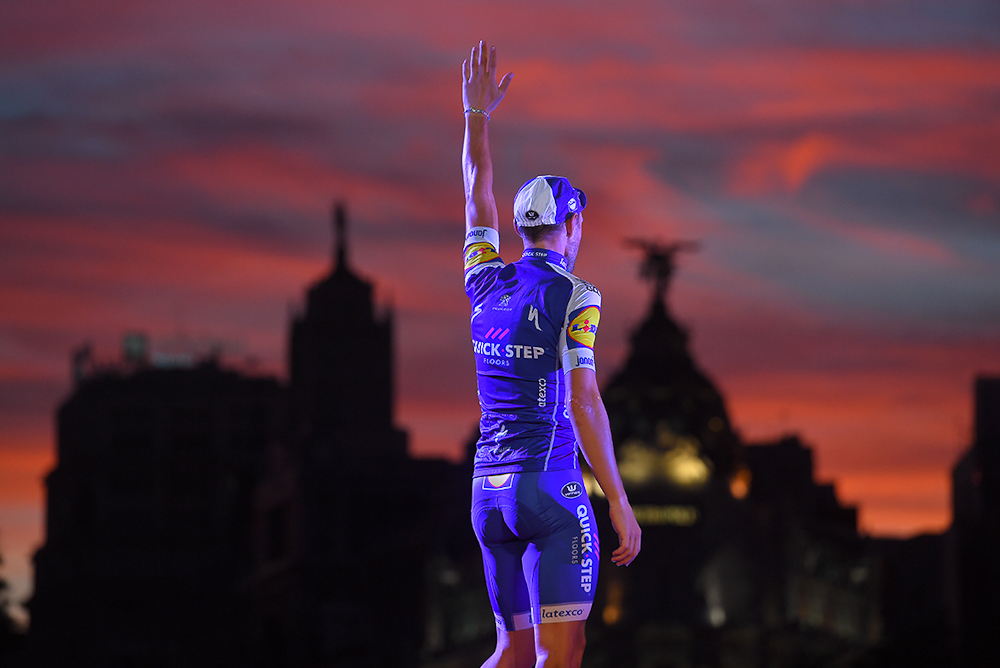
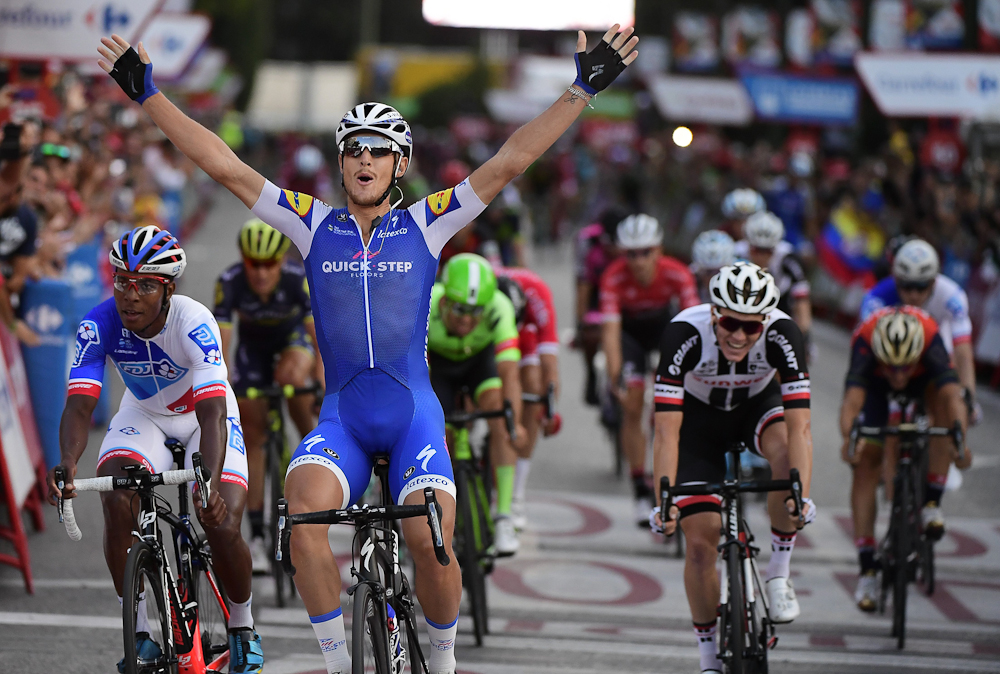
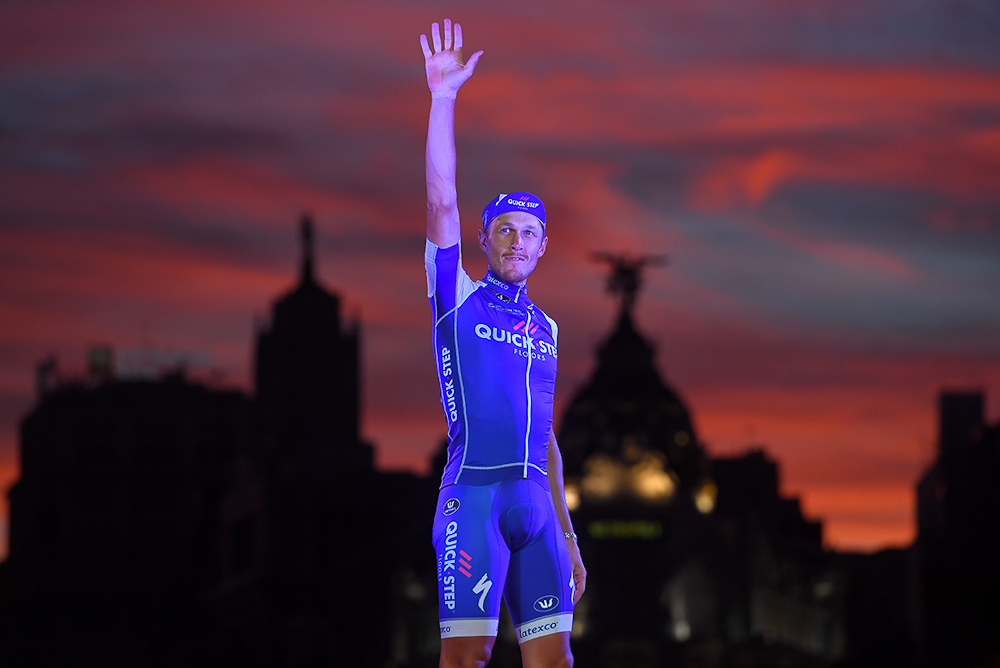
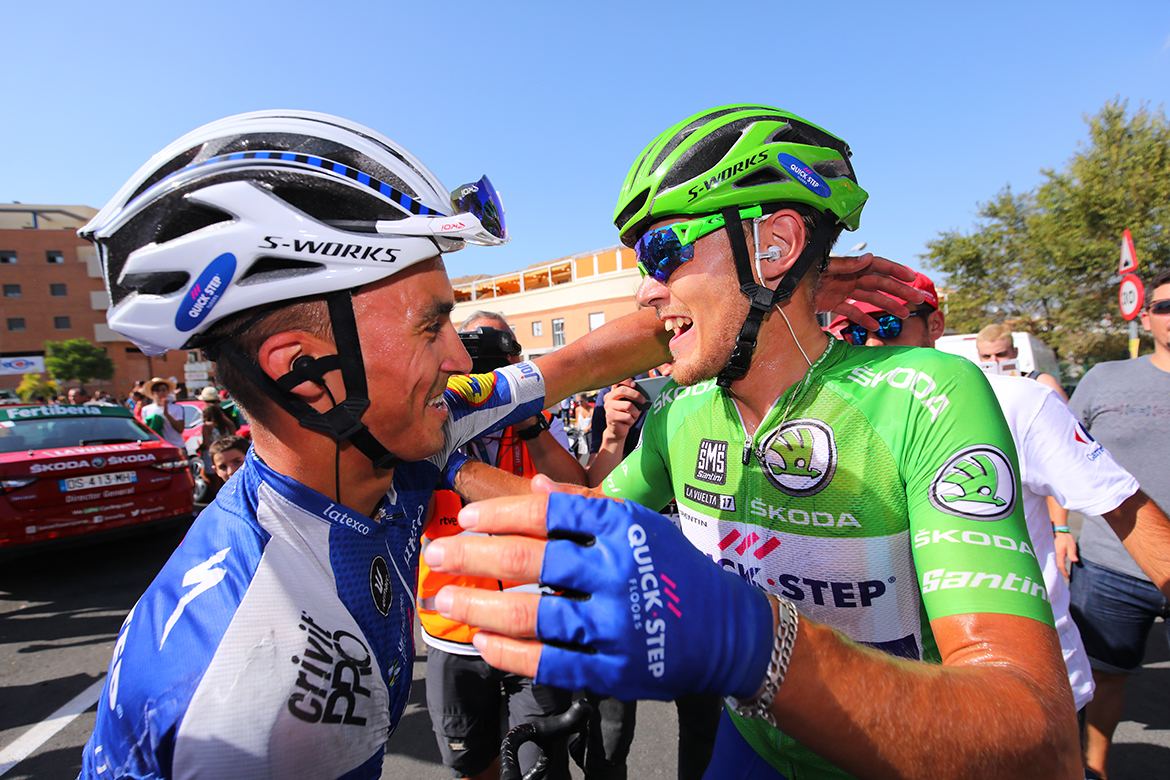
Matteo Trentin (Quick-Step Floors) rounded off the Vuelta a España with the most prestigious sprint victory of them all on Madrid's Paseo de la Castellana, and clinching a sixth win for the Belgian squad, nearly a third of the total possible.
Trentin's victory came in a typically fraught sprint on the slight uphill finish in central Madrid, powering through the pack to take the Vuelta's last stage by a bike length from France's Lorenzo Manzin (FDJ). It was the perfect way to round off a spectacular Grand Tour campaign for Quick-Step Floors, with six wins in the Vuelta, five in the Giro d'Italia and five in the Tour de France.
Quick-Step's win rate in the Grand Tours has been such this year that collectively it was perhaps not so surprising that Trentin would win. But when asked if he was surprised at having amassed so many stages in his maiden Vuelta on an individual level, the 28-year-old confirmed that was the case.
"Yes, as I said in the first press conference, the second and the third. I came here to try and win stages, but knowing there are not too many easy finishes. My condition was pretty good and that's why I could do what I could do in this Vuelta," he said.
"Thanks to also my team, because in three stages that I could win we controlled the race from start to finish. It's also thanks to them that I achieved this. I can't forget that we won six stages, we pretty much dominated this Vuelta in that area."
From the barriers, the Italian's victory in downtown Madrid looked straightforward, if a shade chaotic, but Trentin said that the preceding laps en route to his fourth win of the Vuelta "had been very stressful." The circuit, with three very sharp hairpin corners, meant riders would go from full speed to a near standstill then back to full speed, and the best way to stay in contention in such circumstances "is to stay near the front all the time, which is what we had to keep, and it was working pretty well."
"But it's the last week of the Vuelta. We've just done a lot of very hard stages, above all yesterday, and on top of that we've done almost 2,000 kilometres of transfer in the team bus and that was almost harder than the stages themselves."
The latest race content, interviews, features, reviews and expert buying guides, direct to your inbox!
The only possible fly in the ointment on Sunday was that the Italian was unable to claim the overall victory in the Vuelta points ranking, though, given that Froome, who was leading that classification, took part in the final bunch sprint, placing 11th.
As a result, Trentin lost by two points, but as he said afterwards, on the plus side, he had achieved a placing - seocnd - in the points ranking far higher than any other sprinter in a competition which, given the structure of the Vuelta, was one where the climbers and GC riders would automatically have the edge.
"It's like this, there's nothing I can do. I can say that the glass is half-full, because probably nobody can ever expect this from me - to win four stages and also to be there, fighting for the points jersey. If you look at the sprinter who's next best in the points competition, he's probably 25th, because it's all full of GC guys and if you look at the profile of the Vuelta, 90 percent of the stages favoured the climbers. It's a pity, but I think I can survive."
Trentin was more cagy about his objectives with Orica-Scott next season, saying he had yet to talk it through with his new team. Unsurprisingly, "winning as much as I can and growing as much as a rider" was likely high on his list of his priorities, but his first objective is "to honour this [Quick-Step Floors] until my last race with them."
In the last stage of the Vuelta, there could be no doubt he continued to do that in the best way possible.
Alasdair Fotheringham has been reporting on cycling since 1991. He has covered every Tour de France since 1992 bar one, as well as numerous other bike races of all shapes and sizes, ranging from the Olympic Games in 2008 to the now sadly defunct Subida a Urkiola hill climb in Spain. As well as working for Cyclingnews, he has also written for The Independent, The Guardian, ProCycling, The Express and Reuters.


